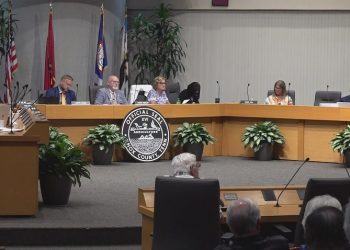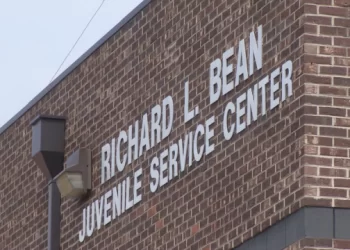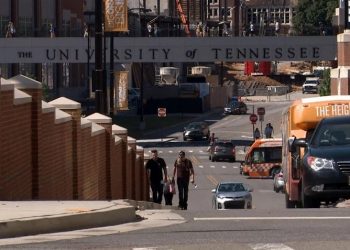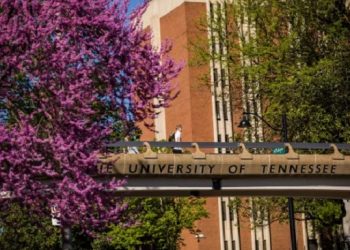Maryville, Tenn. – A controversial bill aimed at restricting enrollment for undocumented students in Tennessee public schools has sparked protests and intense debate. On Tuesday, the K-12 Subcommittee voted in favor of HB0793, advancing it to the full Education Committee for further consideration.
The bill, which would allow local school districts to refuse enrollment to undocumented students, has drawn strong opposition from hundreds of parents, students, and community leaders who gathered at the Cordell Hull building to voice their concerns. Protesters argue that the bill unfairly targets immigrant children and violates the principles of equal access to education, a right upheld by the U.S. Supreme Court in 1982.
Among the protesters was Dulce Castro, who moved to Tennessee at the age of six and credited public education with her success. Castro, now an advocate for immigrant rights, spoke passionately about the importance of education, stating, “Knowledge is the one thing that can’t be stripped away from someone when they are unjustly targeted. We live in this state. We contribute to this state as much as everyone else does, and just because we look a certain way doesn’t mean that we are illegal or criminals.”
Castro and other protesters rallied around the message that education should be accessible to all children, regardless of their immigration status. Holding signs and chanting slogans like “Drop the bill” and “Education for all,” they expressed frustration over the potential impact on children who would be denied access to public schooling.
The protest was organized by the Immigrant and Refugee Rights Coalition, which has been vocal in its opposition to the bill. Coalition leaders called the proposal shameful and warned that it could set a dangerous precedent in the state. They also expressed concerns that the bill would shift attention away from critical issues, such as improving the cost of living for Tennesseans, by focusing on restricting access to education.
Supporters of the bill, including Rep. William Lamberth (R-Portland), who sponsored the legislation, argue that it provides school districts with the option to request proof of citizenship, alongside existing requirements for proof of residency and immunization. Lamberth contended that the current rules, which do not allow schools to ask about a student’s legal status, make it difficult to track the costs associated with educating undocumented children.
“This gives an option to local districts to require that proof of citizenship, just as they require proof of residency or immunizations,” Lamberth said during the hearing.
The bill’s supporters also point to financial concerns, suggesting that some districts may struggle to cover the costs of educating undocumented students without additional resources. A related Senate version of the bill includes an amendment to charge tuition for undocumented students, further raising concerns among opponents about the financial burden and potential discrimination.
The Tuesday hearing was temporarily disrupted by the protests, preventing the committee from discussing a similar bill in the House. Despite the disruption, protesters, including Castro, made it clear that they would continue to fight the bill and raise their voices whenever the issue comes up for discussion.
“We care about our children, we care about the future, and we are not leaving,” Castro said, reinforcing her commitment to challenging the bill at every step.
As the bill moves through the legislative process, the debate over its potential impact on immigrant children, public education, and state resources is likely to intensify, with both sides preparing for further confrontation in the coming weeks.













